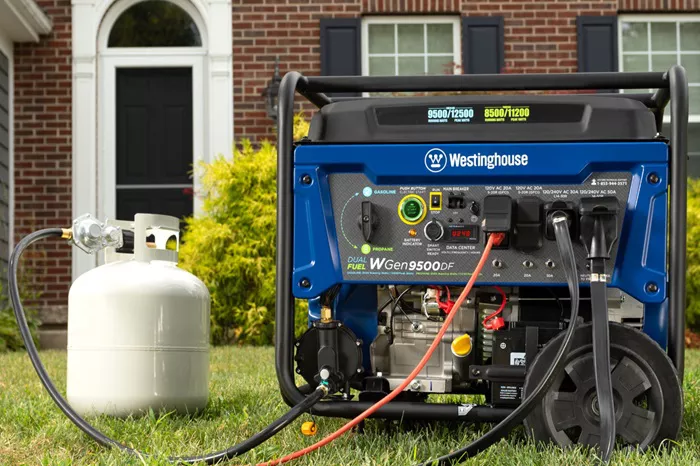If you’re looking for a reliable backup power source for your home, a generator is an excellent investment. Whether you live in an area prone to power outages or simply want to ensure uninterrupted electricity during emergencies, choosing the right generator is crucial. This guide will help you understand the different types of generators, key features to consider, and where to buy one that fits your needs.
Types of Home Generators
Before purchasing a generator, it’s important to know the different types available. Each type has its own advantages and best-use scenarios.
Portable Generators
Portable generators are the most common choice for homeowners. They run on gasoline, propane, or diesel and can power essential appliances during an outage. These generators are easy to move and store but require manual setup.
Best for: Temporary power needs, camping, or small households.
Inverter Generators
Inverter generators are a quieter and more fuel-efficient version of portable generators. They produce clean, stable power, making them safe for sensitive electronics like laptops and smartphones.
Best for: RVs, outdoor events, and homes with electronic devices.
Standby Generators
Standby generators are permanently installed outside your home and automatically turn on when the power goes out. They run on natural gas or propane and can power an entire house for days.
Best for: Large homes, areas with frequent outages, and homeowners who want a seamless backup solution.
Solar Generators
Solar generators use solar panels to store energy in batteries. They are eco-friendly, silent, and require no fuel, but their power output is limited compared to fuel-based generators.
Best for: Eco-conscious homeowners, off-grid living, or as a supplemental power source.
Key Features to Consider When Buying a Generator
Choosing the right generator depends on several factors. Here’s what you should look for:
Power Output (Wattage)
Generators are rated by their wattage capacity. To determine the right size:
Calculate your power needs: Add up the wattage of essential appliances (e.g., refrigerator, lights, sump pump).
Starting vs. running watts: Some appliances (like air conditioners) need extra power when starting.
A 5,000–7,500-watt generator can power most home essentials, while a 10,000+ watt unit can support larger homes.
Fuel Type
Gasoline: Easily available but has a short shelf life.
Propane: Stores longer and burns cleaner.
Diesel: More efficient for heavy-duty use.
Natural gas: Only for standby generators; requires a gas line.
Run Time
Check how long the generator can run at 50% load. Portable models typically last 8–12 hours, while standby generators can run for days if connected to a fuel source.
Noise Level
Generators can be loud. Inverter models are the quietest (50–60 dB), while conventional portables can reach 70 dB or more.
Transfer Switch (For Standby Generators)
A transfer switch ensures safe connection to your home’s electrical system. Professional installation is required.
Where to Buy a Home Generator
Now that you know what to look for, here are the best places to buy a generator:
Home Improvement Stores
Stores like Home Depot, Lowe’s, and Menards carry a wide selection of portable and standby generators. You can see models in person and get expert advice.
Online Retailers
Websites like Amazon, Walmart, and eBay offer competitive prices and customer reviews. Look for trusted brands like Honda, Generac, and Champion.
Specialty Generator Dealers
Some companies, like Generac and Kohler dealers, specialize in standby generators and provide professional installation.
Local Hardware Stores
Smaller stores may carry portable generators and offer personalized service.
Auction Sites & Secondhand Markets
If you’re on a budget, check Facebook Marketplace, Craigslist, or local auctions for used generators. Always test before buying.
Final Tips Before Purchasing
- Compare prices across different sellers.
- Check warranty and return policies.
- Read customer reviews for real-world performance insights.
- Consider professional installation for standby generators.
Conclusion
Buying a generator for your home is a smart way to ensure power during outages. By understanding the different types, key features, and where to buy, you can make an informed decision. Whether you choose a portable, inverter, standby, or solar generator, always prioritize safety and proper usage.
For the best deals, check both local stores and online retailers, and don’t hesitate to ask experts for advice. With the right generator, you’ll never have to worry about losing power again.

